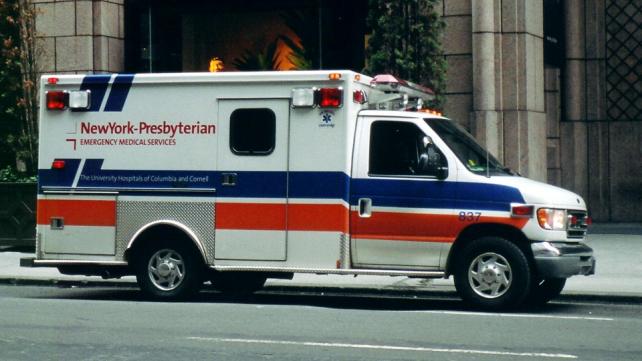
Eighteen thousand people die each year in the United States because they are uninsured.
The US is the only industrialized country in the world without a universal health insurance system.
Studies estimate that the number of excess deaths among uninsured adults age 25-64 is in the range of 22,000 a year. This mortality figure is more than the number of deaths from diabetes (17,500) within the same age group.
Controlling for age, race, sex, and income, uninsured cancer patients are 1.6 times more likely than insured patients to die within five years of diagnosis. 10
The number of uninsured increased to 46.3 million in 2008, from 45.7 million in 2007.
The percentage of people covered by government health insurance programs increased to 29.0 percent in 2008, from 27.8 percent in 2007.
The percentage and the number of people covered by Medicaid increased to 14.1 percent and 42.6 million in 2008, from 13.2 percent and 39.6 million in 2007.
The percentage and number of people covered by Medicare increased to 14.3 percent and 43.0 million in 2008, from 13.8 percent and 41.4 million in 2007.
Lack of insurance compromises the health of the uninsured because they receive less preventive care, they are diagnosed at more advanced disease stages, and once diagnosed, tend to receive less therapeutic care and have higher mortality rates than insured individuals.
More than 9 million children lack health insurance in America.
Although the uninsured rate for children in poverty declined from 17.6 percent in 2007 to 15.7 percent in 2008, children in poverty were more likely to be uninsured than all children.
One in three low-income parents without coverage report medical bills have a major financial impact on their families
Nearly 90 million people ? about one-third of the population below the age of 65 spent a portion of either 2007 or 2008 without health coverage
Over 8 in 10 uninsured people come from working families.
Skipping vital medical care because of costs
On average, the uninsured are 9 to 10 times more likely to forgo medical care because of cost.
Fifty-four percent of chronically ill Americans reported skipping a test or treatment, neglecting to go to a doctor when sick, or failing to fill a prescription because of the cost, according to a 2008 survey by the Commonwealth Fund, a foundation that focuses on health care, and pollster Harris Interactive.
The uninsured are increasingly paying "up front" - before services will be rendered. When they are unable to pay the full medical bill in cash at the time of service, they can be turned away except in life-threatening circumstances.
According to the UN Human Development Report, "The uninsured are less likely to have regular outpatient care, so they are more likely to be hospitalized for avoidable health problems. Once in hospital, they receive fewer services and are more likely to die in the hospital than are insured patients. They also receive less preventive care. Over 40% of the uninsured do not have a regular place to go when they are sick and over a third of the uninsured say that they or someone in their family went without needed care, including recommended treatments or prescription drugs in the last year, because of cost.
The uninsured "insured"
Even if employees are offered coverage on the job, they can't always afford their portion of the premium (co-pays). Health insurance premiums have increased 131 percent for employers since 1999 and employee spending for health insurance coverage (employee's share of family coverage) has increased 128 percent between 1999 and 2008.
Health insurance premiums are rising at extraordinary rates. The average annual increase in inflation has been 2.5 percent while health insurance premiums for small firms have escalated an average of 12 percent annually.7
The scary future
A recent study shows that based on the effects of the recession alone (not job loss), it is projected that nearly 7 million Americans will lose their health insurance coverage between 2008 and 2010.
Urban Institute researchers estimate that if unemployment reaches 10 percent, another 6 million Americans will lose their health insurance coverage. Taking these numbers together, it is conceivable that by next year, 57 to 60 million Americans will be uninsured.
The Urban Institute estimates that under a worse case scenario, 66 million Americans will be uninsured by 2019.
Other facts and stats
There are four times as many health care lobbyists in Washington as there are members of Congress.
Ninety percent of Americans believe the American health care system needs fundamental changes or needs to be completely rebuilt. Two-thirds of Americans believe the federal government should guarantee universal health care for all citizens.
Sources
National Coalition for Health Care
"Ambulance NYC". Licensed under Creative Commons Attribution-Share Alike 2.5 via Wikimedia Commons - http://commons.wikimedia.org/wiki/File:Ambulance_NYC.jpg#mediaviewer/File:Ambulance_NYC.jpg




Add new comment